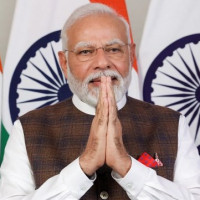आरक्षण विरोधियों से सवाल: क्या आप चाहेंगे आपके बच्चे ये काम करें? | F&F E-143 Hemant
In this eye-opening video, we delve into the deeply rooted caste discrimination present in India’s funeral and mortuary services, where Dalit workers are forced to carry out the most degrading and inhumane tasks. The story of Santoshi Durga, a Dalit woman in Narharpur, Chhattisgarh, who performs autopsies despite having no medical training or MBBS degree, reveals the shocking truth behind caste-based exploitation in post-mortem procedures. Santoshi Durga and others like her are subjected to horrific working conditions, using basic tools to perform autopsies in poorly equipped rooms with no water, electricity, or proper medical equipment. Despite their immense contribution to the criminal justice system, they remain invisible, marginalized, and underpaid. They are seen as "cutter" workers, performing tasks that should be done by qualified professionals. The video highlights how the caste system forces Dalits to perform these tasks, often leading to severe physical and mental health issues due to the trauma, lack of safety, and hazardous work conditions. Despite the critical nature of post-mortem work in criminal cases, the lack of qualified staff and proper training is leading to inaccurate reports and failures in the criminal justice system. We also explore how caste-based discrimination in these sectors results in the denial of job security, decent wages, and a future of dignity for Dalit workers. The legal system's indifference to their plight and the government's failure to address these systemic issues only perpetuate this cycle of exploitation. This video calls for a much-needed discussion on caste discrimination, the rights of workers, and the urgent need for systemic reform in India's healthcare and justice system.




